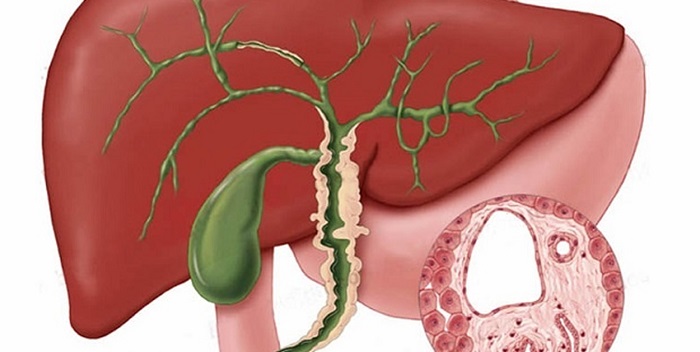El hígado es el segundo órgano más grande del cuerpo, con un peso de aproximadamente 3 libras. Es un órgano que tiene muchas funciones vitales, como el metabolismo, la digestión, la desintoxicación de toxinas, la producción de proteínas y los factores de coagulación de la sangre, la regulación y el almacenamiento de nutrientes, así como el aumento de la inmunidad del cuerpo.
Any infection or medical condition can cause liver swelling known as liver enlargement or hepatomegaly. Liver enlargement is not a disease, but a symptom of several other conditions or diseases in the body affecting liver. Liver enlargement could be mild, moderate or severe depending on the disease including an infection, toxin poisoning, genetic disease, certain medication, cancer or heart and blood vessel abnormality. Liver enlargement is not a disease itself, but a sign of liver disease and there are other associated signs and symptoms of liver disease along with liver enlargement based on the underlying cause. The question whether liver enlargement can be reversed or not depends on the underlying cause too. Since liver is a very resilient organ and has a capacity to recover and regenerate on its own. Therefore, liver enlargement can be reversed or at least stabilized except for most severe cases of liver damage. However, for liver enlargement to reverse it is necessary to remove the toxin that is causing liver damage.
Different Causes of Liver Enlargement
Enlarged liver is a sign that the liver is not functioning properly and common causes or conditions that lead to liver enlargement include liver cirrhosis, nonalcoholic fatty liver disease (NAFLD), alcoholic liver disease, metastatic cancer, liver cancer, hepatitis A, hepatitis B, hepatitis C and congestive heart failure. Other less common causes include lymphoma, leukemia, multiple myeloma, hemochromatosis, Wilson’s disease, Gaucher’s disease, toxic hepatitis and bile duct or gall bladder obstruction.
There are certain risk factors for liver enlargement and these include autoimmune diseases, inflammatory bowel disease, chronic liver disease, liver cancers, obesity, sickle cell disease, cysts and tumors of liver. There are certain lifestyle factors that can also put an individual at a greater risk of developing liver enlargement and those include excessive alcohol consumption, tattoos and blood transfusions. Individuals taking herbs like comfrey and mistletoe may also develop liver enlargement. Certain prescription drugs are also likely to cause liver enlargement and one should talk to his/her doctor about complete medical history before being prescribed any medication or in fact taking any over the counter medications.
Diagnoses for Enlarged Liver
Liver enlargement is diagnosed on the basis of complete medical history as well as physical examination. The doctor will also order blood tests including complete blood count and liver function tests along with imaging, which includes abdominal X-ray, computed tomography (CT) scan, magnetic resonance imaging (MRI) and ultrasound of the abdomen. A liver biopsy can also be ordered based on the results and seriousness of the condition.
Ways in Which Liver Enlargement Can Be Reversed
The ways in which an enlarged liver can be reversed depends on the removal of the toxin abusing or irritating the liver. It can be reversed by treating the underlying cause. If a medication or drug is the cause of liver enlargement, then the person needs to stop the medication completely or if it is due to fatty liver then the person needs to make lifestyle changes with diet and exercise. When liver enlargement is caused due to an infection, then it is necessary to eradicate the infection with the help of medications and lifestyle modifications.
However, the most common cause of liver abuse is alcohol that causes many liver problems such as fibrosis, cirrhosis or alcoholic liver disease. The first and foremost thing to do is to abstain from alcohol, if one wants to reverse liver enlargement. When the damage to liver is mild then liver enlargement can be completely reversed, but if the damage is severe then also the person needs to abstain from alcohol to get his liver stabilized, otherwise, there are chances of liver failure and the only treatment for that is liver transplant.
Also Read:
- Fatty Liver Disease (FLD): Causes, Risk Factors, Symptoms, Treatment, Prevention
- Liver Damage or Liver Failure: Causes, Signs, Symptoms, Prevention
- What is Enlarged liver or Hepatomegaly: Causes, Symptoms, Treatment, Recovery, Complications
- 6 Home Remedies for Enlarged Liver or Hepatomegaly
- 5 Natural Ways to Cleanse Your Liver and Kidneys
- Types of Liver Infection: Viral and Non-Viral Liver Infection


